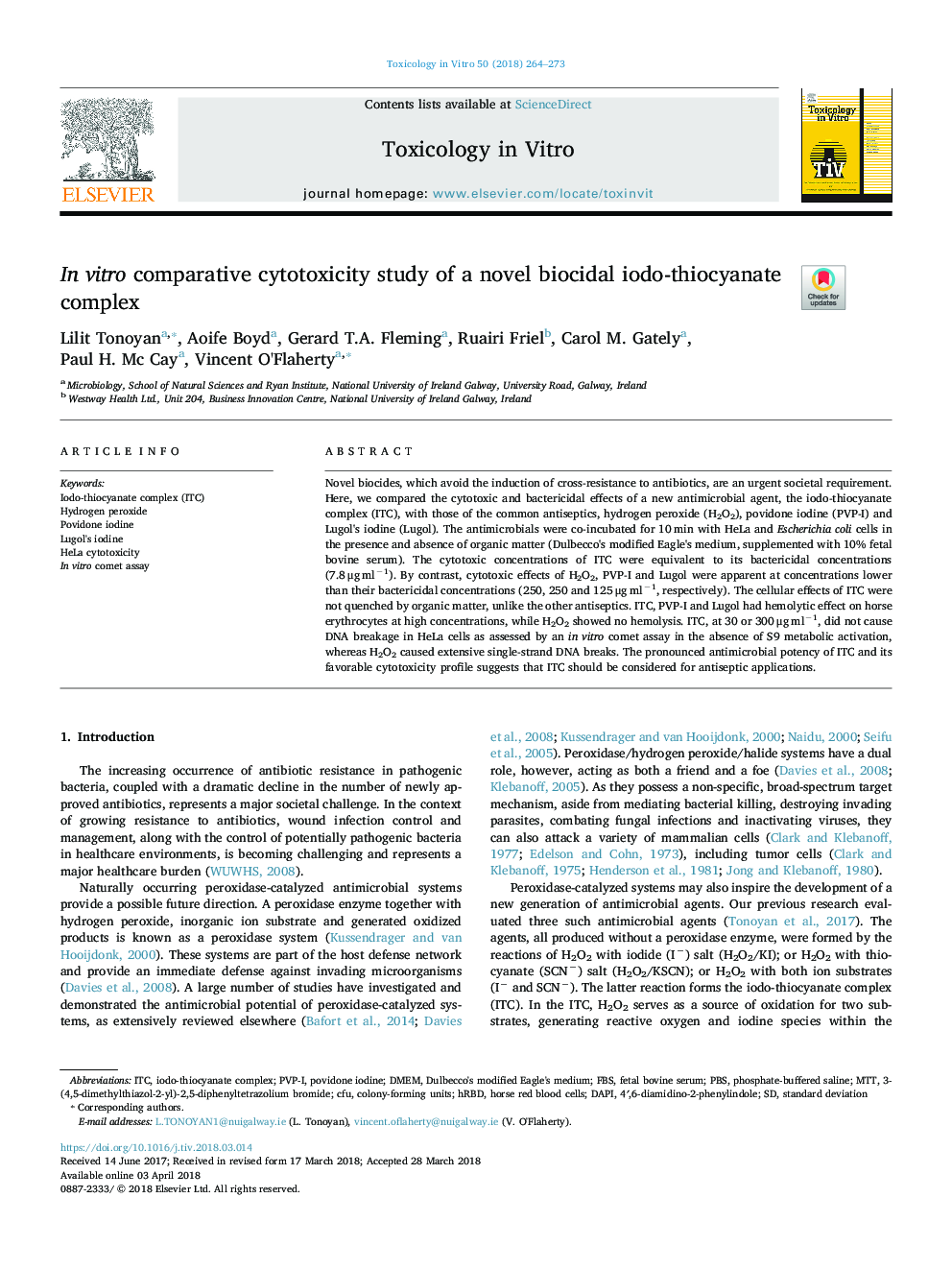| Article ID | Journal | Published Year | Pages | File Type |
|---|---|---|---|---|
| 8553897 | Toxicology in Vitro | 2018 | 10 Pages |
Abstract
Novel biocides, which avoid the induction of cross-resistance to antibiotics, are an urgent societal requirement. Here, we compared the cytotoxic and bactericidal effects of a new antimicrobial agent, the iodo-thiocyanate complex (ITC), with those of the common antiseptics, hydrogen peroxide (H2O2), povidone iodine (PVP-I) and Lugol's iodine (Lugol). The antimicrobials were co-incubated for 10â¯min with HeLa and Escherichia coli cells in the presence and absence of organic matter (Dulbecco's modified Eagle's medium, supplemented with 10% fetal bovine serum). The cytotoxic concentrations of ITC were equivalent to its bactericidal concentrations (7.8â¯Î¼gâ¯mlâ1). By contrast, cytotoxic effects of H2O2, PVP-I and Lugol were apparent at concentrations lower than their bactericidal concentrations (250, 250 and 125â¯Î¼gâ¯mlâ1, respectively). The cellular effects of ITC were not quenched by organic matter, unlike the other antiseptics. ITC, PVP-I and Lugol had hemolytic effect on horse erythrocytes at high concentrations, while H2O2 showed no hemolysis. ITC, at 30 or 300â¯Î¼gâ¯mlâ1, did not cause DNA breakage in HeLa cells as assessed by an in vitro comet assay in the absence of S9 metabolic activation, whereas H2O2 caused extensive single-strand DNA breaks. The pronounced antimicrobial potency of ITC and its favorable cytotoxicity profile suggests that ITC should be considered for antiseptic applications.
Keywords
Related Topics
Life Sciences
Environmental Science
Health, Toxicology and Mutagenesis
Authors
Lilit Tonoyan, Aoife Boyd, Gerard T.A. Fleming, Ruairi Friel, Carol M. Gately, Paul H. Mc Cay, Vincent O'Flaherty,
